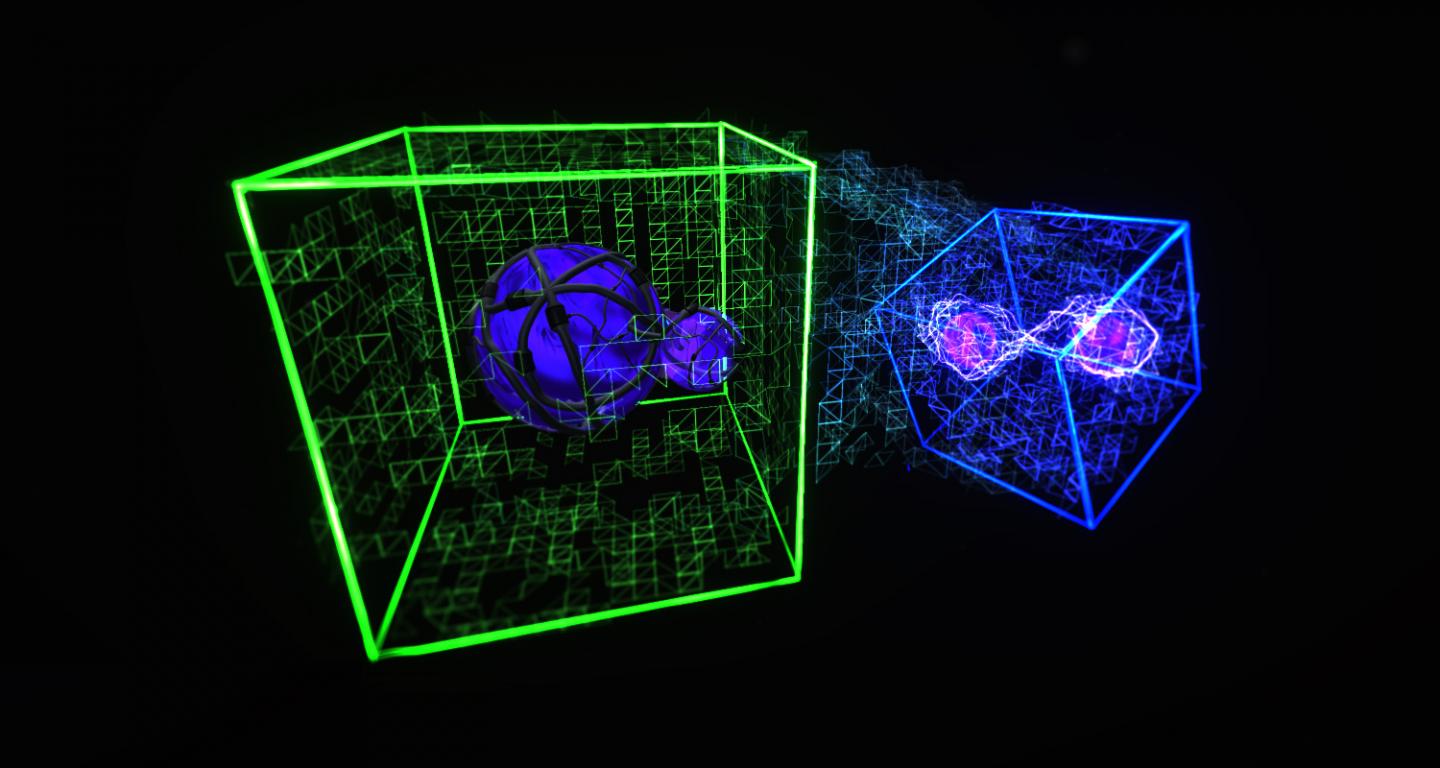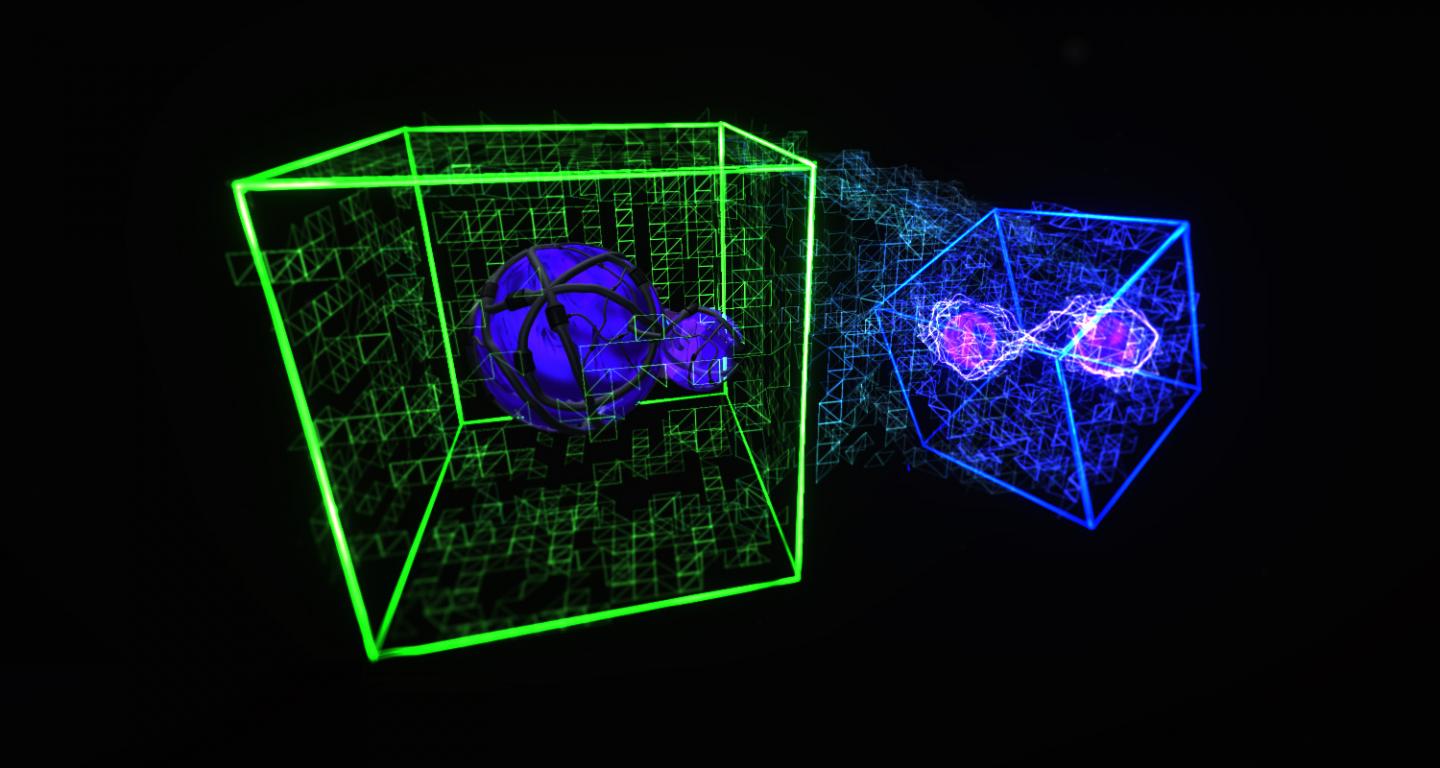
Credit: Mile Gu and Jayne Thompson / Centre for Quantum Technologies, Singapore
The word 'replicant' evokes thoughts of a sci-fi world where society has replaced common creatures with artificial machines that replicate their behaviour. Now researchers from Singapore have shown that if such machines are ever created, they'll run more efficiently if they harness quantum theory to respond to the environment.
This follows the findings of a team from the Centre for Quantum Technologies (CQT), published 10 February in npj Quantum Information. The team investigated 'input-output processes', assessing the mathematical framework used to describe arbitrary devices that make future decisions based on stimuli received from the environment. In almost all cases, they found, a quantum device is more efficient because classical devices have to store more past information than is necessary to simulate the future.
"The reason turns out to be quantum theory's lack of a definitive reality," says co-author Mile Gu, an Assistant Professor at the Nanyang Technological University, Singapore, who is affiliated with CQT. "Quantum mechanics has this famous feature where some properties of quantum particles are not just unknown before they are measured, but fundamentally do not exist in a definitive state prior to the act of measurement," he says. The physics only specifies the probabilities the system collapses to each possible value once the measurement is performed. That lets the quantum system, in a sense, do more with less.
Co-author Jayne Thompson, a Research Fellow at CQT, explains further: "Classical systems always have a definitive reality. They need to retain enough information to respond correctly to each possible future stimulus. By engineering a quantum device so that different inputs are like different quantum measurements, we can replicate the same behaviour without retaining a complete description of how to respond to each individual question." Andrew Garner, another Research Fellow at CQT, and Vlatko Vedral, a Principal Investigator at CQT and Professor at the University of Oxford, also contributed to the paper.
The findings advance earlier work. In 2012, Vedral, Gu and others proved a similar result for another class of problems known as stochastic processes. These are systems that have dynamics independent of external stimuli. That result was just put to experimental test by collaborators from Griffith University in Australia. They constructed a real life quantum simulator of a stochastic process [Science Advances 3, e1601302 (2017)].
This proof-of-principle experiment used just two particles of light. The first simulations of input-output processes will probably be small-scale too, but Gu hopes to ultimately see quantum technologies simulating how complex systems will react and evolve in real life situations.
"Input-output processes are ubiquitous in nature," says Vedral. "Every entity is essentially an input-output process, from neural networks that process past inputs to make future decisions, to seeds that determine when to germinate based on external stimuli," he says.
"Humans have long been fascinated with the idea of replicating nature through machines, from Leonardo da Vinci's famous mechanical knight to speculative fiction of future androids like Philip K. Dick's 'Do Androids Dream of Electric Sheep' that inspired the Blade Runner film," Gu says. "Perhaps androids in the future, engineered by an advanced civilization obsessed with efficiency, will instead dream of quantum sheep."
###
Reference:
J. Thompson et al, "Using quantum theory to simplify input-output processes" npj Quantum Information doi:10.1038/s41534-016-0001-3 (2017)
This work was funded by the John Templeton Foundation Grant 53914 'Occam's Quantum Mechanical Razor: Can Quantum theory admit the Simplest Understanding of Reality?'; the Oxford Martin School; the Ministry of Education in Singapore, the Academic Research Fund Tier 3 MOE2012-T3-1-009; the Foundational Questions Institute Grant Observer-dependent complexity: The quantum-classical divergence over 'what is complex?' the National Research Foundation of Singapore and in particular NRF Award No. NRF-NRFF2016-02.
Researcher Contacts:
Mile Gu
Research Assistant Professor
Centre for Quantum Technologies
Nanyang Assistant Professor
Nanyang Technological University
[email protected]
Jayne Thompson
Research Fellow
Centre for Quantum Technologies
[email protected]
Media Contact
Jenny Hogan
[email protected]
@quantumlah
############
Story Source: Materials provided by Scienmag





